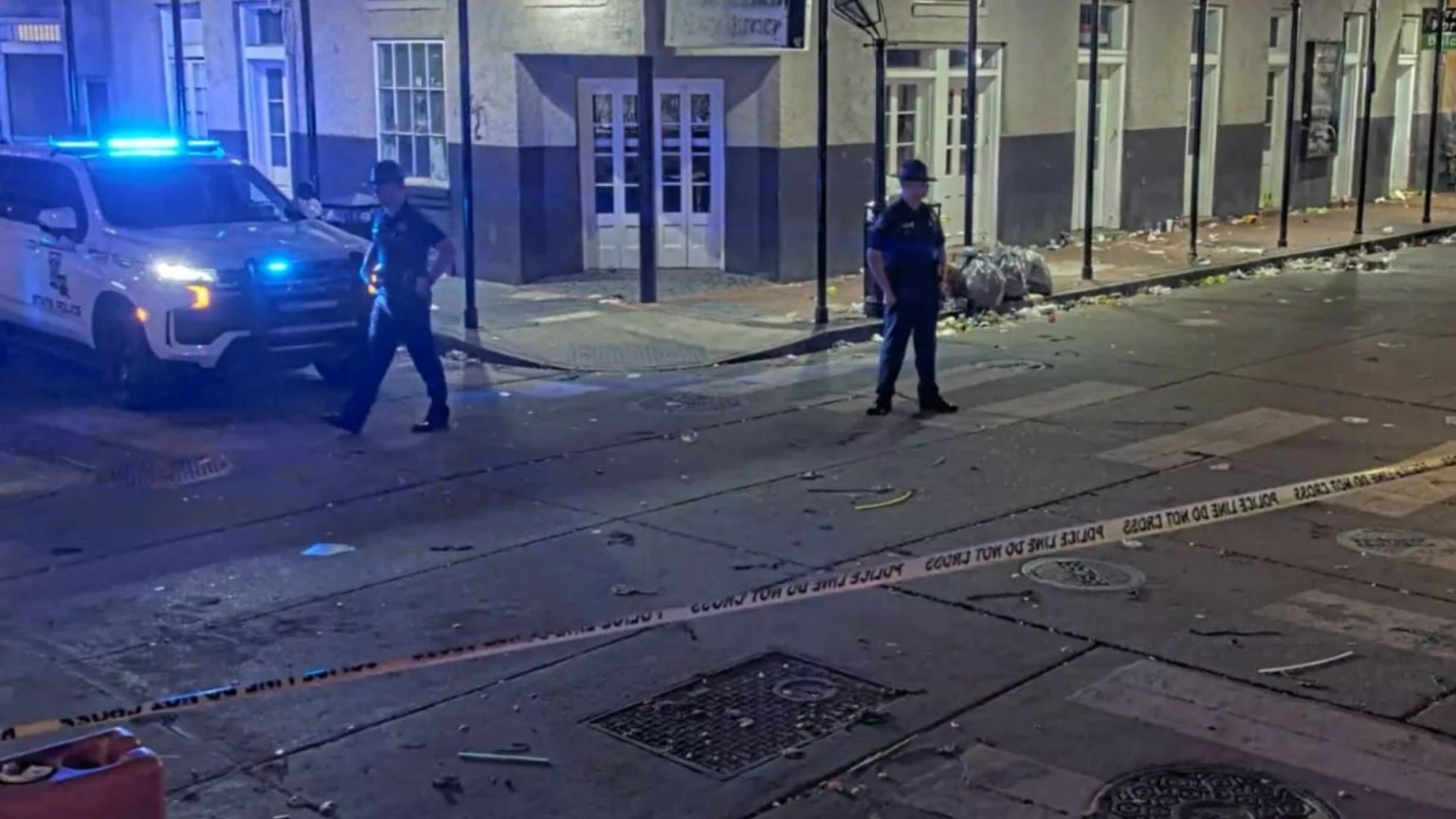The festive atmosphere of New Year’s celebrations in New Orleans was shattered in the early hours of January 1st when a car plowed into a crowd of revelers, leaving multiple people feared dead. The horrific incident occurred at approximately 3:15 am at the intersection of Bourbon Street and Iberville, a bustling hub of nightlife in the city’s historic French Quarter. Emergency crews swiftly descended upon the scene, and while initial reports confirmed one fatality, fears remain that the death toll could rise significantly, potentially reaching as high as ten. Authorities immediately closed off Bourbon Street as they launched an investigation into the circumstances surrounding the tragedy. One eyewitness, who was present with his wife, recounted the harrowing scene, describing an SUV “speeding and running people over.” The incident has cast a pall over the city’s New Year’s festivities, leaving a somber reminder of the vulnerability of large gatherings.
This tragic event eerily echoes a similar incident that occurred just days earlier in Germany, casting a dark shadow over the holiday season. On December 20th, a doctor deliberately drove his car into a crowded Christmas market in Magdeburg, Germany, claiming the lives of five individuals and injuring over 200 others. Among the victims was a nine-year-old child, adding to the immense grief and outrage surrounding the attack. The perpetrator, a 50-year-old Saudi Arabian citizen named Taleb al-Abdulmohsen, had been living in Germany since 2006. The incident sparked widespread condemnation and raised serious questions about potential security lapses.
Disturbingly, information has emerged suggesting that Saudi Arabia had repeatedly alerted German authorities about al-Abdulmohsen, raising concerns about his potential for violence. Months prior to the attack, he had expressed chilling sentiments online, writing in Arabic: “I assure you: if Germany wants war, we will have it. If Germany wants to kill us, we will slaughter them, die.” He also posed a disturbing question: “Is there a path to justice without slaughtering German citizens indiscriminately?” These online pronouncements raise critical questions about whether German authorities adequately responded to these warnings and what steps, if any, were taken to monitor his activities.
Further escalating the concerns about missed warning signs, al-Abdulmohsen had posted a chilling question on X (formerly Twitter) earlier in 2023, asking his 48,000 followers: “Would you blame me if I randomly killed 20 Germans because of what Germany is doing against the Saudi opposition?” This post, which was later deleted, was reported by a concerned individual, but it remains unclear whether law enforcement took any action in response. The revelation of these online pronouncements adds another layer of complexity to the investigation, prompting inquiries about potential failures in intelligence gathering and preventative measures.
The Magdeburg attack and the New Orleans incident, while geographically separated, underscore the vulnerability of public spaces and the potential for devastating consequences when individuals choose to inflict violence upon innocent bystanders. These events serve as stark reminders of the importance of vigilance, both from law enforcement and individuals, in identifying and reporting potential threats. Furthermore, these incidents raise crucial questions about the role of social media platforms in disseminating extremist ideologies and the responsibility of these platforms to monitor and address potentially dangerous content.
The investigations into both incidents are ongoing, with authorities working diligently to piece together the events leading up to these tragedies. In New Orleans, investigators will be focusing on determining the driver’s motives, whether the incident was intentional or accidental, and if any contributing factors, such as impairment, played a role. The German authorities will continue to scrutinize the circumstances surrounding the Magdeburg attack, including examining any potential missed opportunities to prevent the tragedy and evaluating their response to prior warnings about the perpetrator. The aftermath of these incidents will likely lead to renewed discussions regarding public safety measures, security protocols at large gatherings, and the need for increased cooperation between international intelligence agencies to address potential threats.




